It Is Time to Notice That Horrible Mass Bombings Are Targeting Muslims
It is necessary to call the brutal actions of mass murderers deviant behavior, not radical Islam.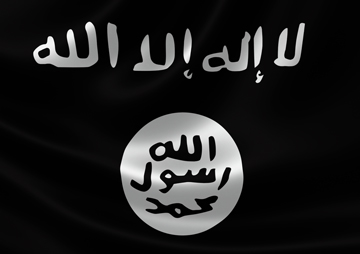 Shutterstock
Shutterstock
By Sarah Lazare / AlterNet
Shutterstock
This piece originally ran on AlterNet.
For U.S. political and pundit classes, “radical Islamic extremism” has become a catch-all term to describe acts of mass violence committed by individuals and groups believed to be Muslim. This label has fueled the incitement against Muslims mounting during the US presidential election, which has been highlighted by Donald Trump calling for a Muslim registry and a ban on Muslims from entering the country.
But as a wave of mass killings sweeps Muslim-majority countries, staining the month of Ramadan with the blood of innocents and even targeting the burial place of the Prophet Muhammad, it should be clear that Muslim people and institutions are the primary victims of this week’s staggering violence. Given this reality, observers argue that it is time to stop reflexively relying on the overly-broad category of “radical Islamic extremism” and instead interrogate the global factors that have set these these cycles of violence in motion.
As Muhammed Malik, co-founder of Muslims for Ferguson and former executive director of Council on American-Islamic Relations in Miami, put it in an interview with AlterNet: “Perhaps the point is not to focus on who is an ‘extremist,’ much less who is a so-called ‘radical Islamic extremist,’ but rather on the social economic and political conditions that give rise to forms of violent extremism that seek to divide and instill fear.”
According to Dalia Mogahed, director of research at the Institute for Social Policy and Understanding, “deviancy” is a helpful category for understanding the latest rash of attacks:
IS are not “extreme”.
They are *deviant*.
If recipe calls for 2 tsp of sugar,
Extreme –>4 c of sugar.
Deviant –>4 c of cyanide.— Dalia Mogahed (@DMogahed) July 5, 2016
At least 44 people were killed at the Istanbul airport on June 28, followed by the slaughter of at least 20 people in Dhaka, Bangladesh and 37 in Kabul, Afghanistan. On July 3 a bombing attack on a busy shopping district in Baghdad killed at least 200 people, with the Islamic state claiming responsibility for what is the deadliest single attack since the U.S. invaded in 2003.
Next, three attacks swept the Saudi Arabian cities of Jeddah, Qatif and Medina in 24 hours, including one near the Prophet Muhammad’s Mosque in the city of Medina, killing at least four people. The attacks were waged as residents were preparing for Eid al-Fitr celebrations.
In each of these instances, the terms “radical Islamic” extremism and terrorism were tossed around by U.S. pundits, lawmakers and political candidates, with presumptive GOP nominee Donald Trump declaring on July 4, “politically correct fools won’t even call it what it is—RADICAL ISLAM.” Such proclamations can be traced to the aftermath of the massacre at Orlando’s LGBTQ Pulse nightclub, when both Trump and Hillary Clinton publicly embraced the term “radical Islamism” to describe the attack by a U.S. citizen.
Yet, how is attacking a key holy site in Islam “Islamic?” Why are pundits and politicians permitted to use this terminology to describe a rash of deadly attacks against Muslim-majority populations during the month of Ramadan?
Ali Al-Ahmed, the director of the Institute for Gulf Affairs, told AlterNet that his uncle used to pray at the Sheikh Faraj Al Omran Mosque in Qatif that was targeted by a deadly suicide bomber. It was an ordinary Shia mosque that serves “mostly older people” and is not known for being particularly politically active, Al-Ahmed explained. The bombing was waged in a city where mass protests against the government have been met with severe repression. Instead of dismissing the attack as an act of radical Islam, said Al-Ahmed, it is necessary to interrogate the unique political and social factors behind the bombing, including whether the Saudi government had any direct or indirect role.
Mohammed Nimr Al-Nimr, son of the executed political dissident Sheikh Nimr Al-Nimr, told AlterNet that such violence is “not going to end unless we point out courageously the source of the problem so we can all work on finding a solution.”
According to Ahmed Habib, member of the editorial collective for the Iraqi digital magazine shakomako.net, a real examination of this week’s rash of bombings requires scrutinizing the responsibility of countries like the United States. “The recent attacks on Baghdad are the natural outcome of decades of dictatorship, sanctions and war,” he said. “American foreign policy and military violence have played a critical role in undermining democracy, decimating civil society and unravelling critical infrastructure in the country and throughout the global South.”
“The result is a destroyed society that is fighting against militias, extremist thugs and the systemic theft of its resources,” Habib continued. “The resilience of everyday Iraqis to continue living and excelling in spite of the apocalyptic conditions they are subjected to is remarkable. Their strength in the face of death and sectarianism is the only hope Baghdad has to survive this latest onslaught.”
Muslims are on the front lines of efforts to mend strife and violence, and they are being targeted by horrific bombings. It is time we stop dishonoring them by labeling the violence committed against them with overly-simple terminology that reinforces Islamophobia.
Your support matters…Independent journalism is under threat and overshadowed by heavily funded mainstream media.
You can help level the playing field. Become a member.
Your tax-deductible contribution keeps us digging beneath the headlines to give you thought-provoking, investigative reporting and analysis that unearths what's really happening- without compromise.
Give today to support our courageous, independent journalists.
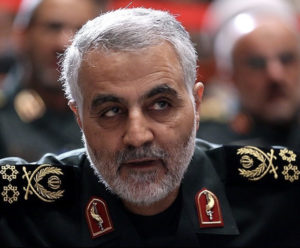

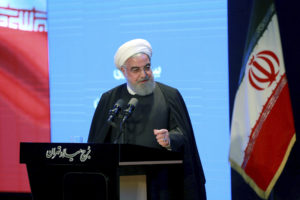

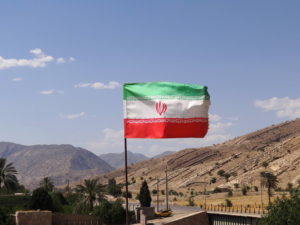
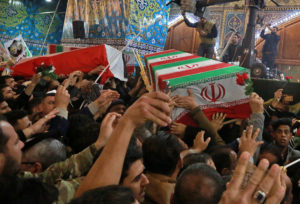
You need to be a supporter to comment.
There are currently no responses to this article.
Be the first to respond.